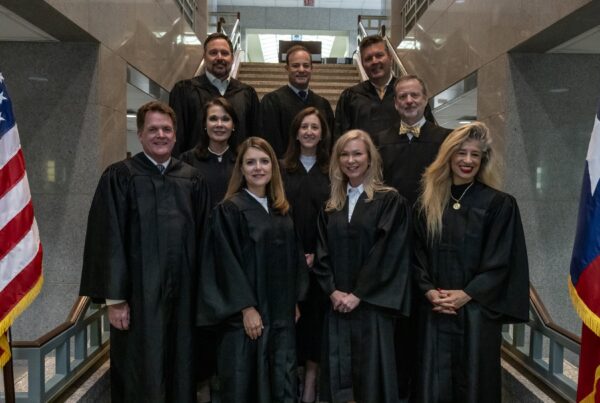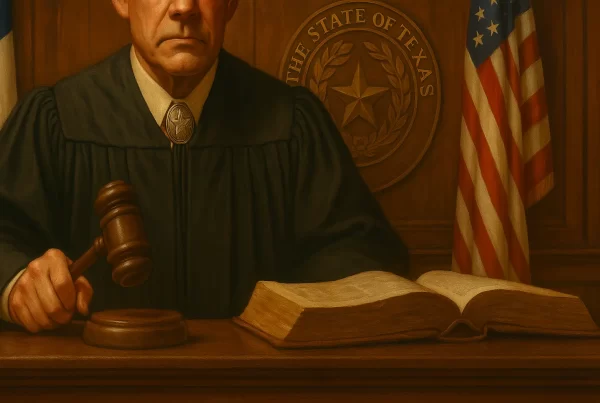The right to a jury trial in civil cases is a cornerstone of the Texas legal system, reflecting deep constitutional roots and a long-standing cultural preference for citizen participation in the administration of justice.
But while the principle remains intact, the practical role of civil juries in Texas has evolved. Fewer cases go to trial, and judges play an increasingly active role in shaping outcomes through pretrial motions, summary judgments, and procedural gatekeeping. Still, the jury—or the risk of a jury trial—remains a vital part of civil litigation, especially in high-stakes cases involving personal injury, defamation, property disputes, and other claims where factual disputes are central.
Constitutional Right to a Jury in Civil Cases
Article I, Section 15 of the Texas Constitution guarantees the right to a jury trial in civil matters, stating: “The right of trial by jury shall remain inviolate.”
This language mirrors similar protections found in the U.S. Constitution and has been interpreted by Texas courts as preserving the jury trial in all cases where it existed at common law at the time of statehood. In practice, this means that civil litigants have a right to a jury in most actions for damages, breaches of contract, and tort claims.
To exercise this right, however, a party must take affirmative steps. Under the Texas Rules of Civil Procedure, a jury demand must be filed in writing and accompanied by a jury fee—currently set at $40—within a prescribed time period. If no jury is requested, the judge will typically hear and decide the case as the trier of fact.
Composition and Selection of Civil Juries
Texas civil juries typically consist of 12 jurors in district court and 6 jurors in county or justice courts, unless the parties agree to a smaller number. The selection process, or voir dire, allows attorneys to question prospective jurors and use challenges for cause or peremptory challenges to strike biased or unfavorable individuals. The goal is to impanel a fair and impartial jury capable of evaluating evidence and applying the law as instructed by the judge.
Texas law does not require unanimity in all civil cases. In most civil jury trials, a verdict by 10 of 12 jurors (or 5 of 6 in smaller panels) is sufficient to render a judgment. This is a notable distinction from criminal trials, which require unanimity for conviction.
When Civil Juries Decide—and When They Don’t
Juries in civil trials serve as the finders of fact. They weigh the evidence, judge the credibility of witnesses, and determine what actually happened. Judges, by contrast, serve as the finders of law—instructing juries on the applicable legal standards, ruling on objections, and guiding courtroom procedure.
However, not all civil cases go to a jury. Many are resolved through summary judgment, dismissals, or settlement. Judges may rule as a matter of law if there are no genuine disputes of material fact. In cases involving equitable relief (such as injunctions or declaratory judgments), the decision is generally made by the judge alone. Some statutes also establish special administrative procedures—for example, in family law or probate—that often do not involve juries at all.
Decline in Jury Trials and Changing Landscape
Over the past several decades, jury trials have become increasingly rare in Texas civil courts. A growing percentage of cases are resolved through alternative dispute resolution (ADR) methods like mediation and arbitration, or are dismissed at the summary judgment stage. The cost, complexity, and time involved in jury trials often discourages litigants from pursuing them unless the potential damages are high or the facts are highly contested.
Moreover, legislative reforms such as tort reform have altered the incentives for trial. Caps on damages in medical malpractice cases, limits on punitive damages, and heightened pleading standards have made it more difficult for certain types of plaintiffs to reach a jury.
Nevertheless, civil juries continue to play a decisive role in high-profile and emotionally charged cases—such as wrongful death, workplace injury, sexual harassment, and product liability suits. In these matters, juries serve as the voice of the community and often reflect broader societal values and judgments. The civil jury in Texas remains a powerful symbol of democratic justice, even as its role has narrowed in modern practice.
Disclaimer: This article is for informational and educational purposes only and does not constitute legal advice. Although Texapedia strives for accuracy and uses reliable sources, some legal information may become outdated or contain unintentional errors. Readers should not rely on this article as a substitute for professional legal counsel. For advice regarding a specific civil case or jury trial rights in Texas, please consult a licensed attorney.



